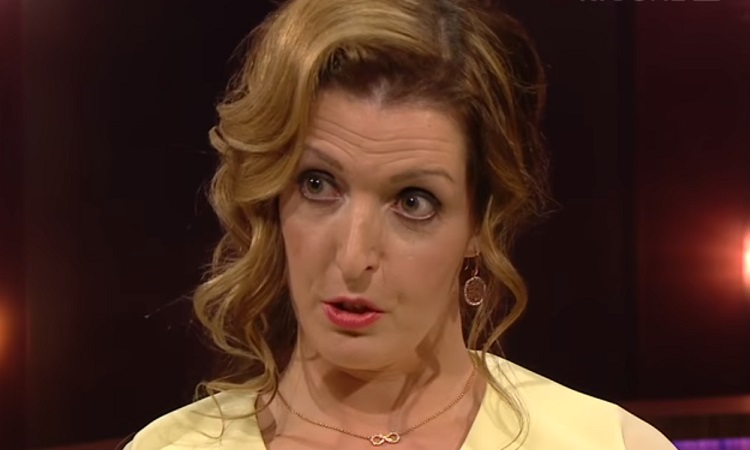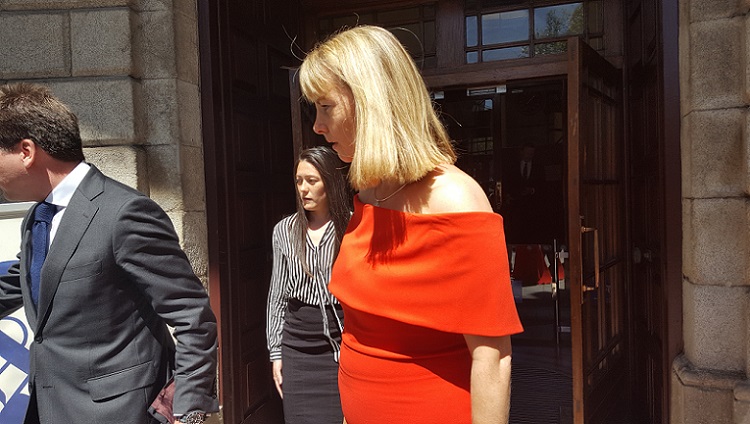The Private and Public Shame of Cervical Cancer
Does anyone remember Jade Goody? She, was the young, mouthy, English Big Brother star, who lived her time from diagnosis to death from cervical cancer on the small screen. Jade found out she had cervical cancer while on Big Brother India in August 2008, only days before my own mother passed away from the disease in Marymount Hospice, Cork. She died in March 2009 at 27.
I could barely watch Jade’s decline, it was like replaying the nightmare that 2008 had been for my family. Just as this year there were times when I had to switch off from the Cervical Check scandal. I was never indifferent, it just cut too close to the bone.
Emma Mhic Mhathúna’s passing this weekend was a harsh reminder that gender injustices in health care have real consequences. Their circumstances were each different but the one thing my Mother, Jade and Emma had in common was that they all died too soon.
Ibuprofen and Iron Pills
This September marked ten years since my Mother’s death. My mother was diagnosed just before Cervical Check came into existence. Nevertheless, her late diagnosis and therefore ineffective treatment were the sum of multiple failures within the Irish health system.
There were the years of missed smears because, for one reason or another, Mum found them traumatic and so avoided them at all costs. Then there was the GP who put the pain and constant bleeding down to early menopause and prescribed ibuprofen and iron pills. Months later when the bleeding had not stopped, he finally gave her a referral to a gynaecologist. The waiting list was seven months long, even with VHI insurance. She would have probably died waiting were it not for the fact that she hemorrhaged in Dublin and was admitted through A&E in the Coombe. After a positive biopsy she was finally referred to a gynaechological oncologist in Cork.
The cogs and wheels of the health system began to turn so that my Mum could receive the treatment she needed. No one in our family could fault the care she received after that, but it was already too late. She had an inoperable tumor that gradually ate away at her. Within eight months of her diagnosis she was referred to Mary Mount Hospice for palliative care and it became a question of when, not if. She did not survive the year.

Silence, Shame and Stigma
I think perhaps the first time I ever heard about cervical cancer was someone citing a study that sought to determine why there was almost no incidence of cervical cancer in Nuns. The conclusion of the study was that since nuns are (supposedly) not sexually active they do not come in contact with the virus that can provoke cervical cancer, namely HPV. As an impressionable 15 year old the message I took from this was: not only can sex get you pregnant and give you STI, but it also causes cancer. The more sex you have and the younger you have sex, the more likely you are to get cancer. So girls, yet another reason for you to keep your legs firmly crossed, because only sluts get cervical cancer.
The reality of course is that HPV is the most common sexually transmitted infection. According to my gynaecological bible, Our Bodies Ourselves, from the Boston Women’s Health Book Collective, up to 50% of women will have HPV at some time in their life, though most will never realise it. There are more than 100 types of HPV, only 30 of which are transmitted through sexual contact, and only 12 of these are known to cause cancer, with types 16 and 18 responsible for 70% of all cervical cancer cases. Most HPV infections disappear on their own within two years, meaning most people don’t even realise they have it. Other infections can clear with treatment and the HPV strains that cause genital warts are generally not associated with cancer.
Despite being so common and treatable, there is a tremendous amount of shame and fear attached to HPV, not least because of its popular association with promiscuity. Often our health care providers, GPs, district nurses and staff at the STI clinics, reinforce our fears and shame through judgmental attitudes and by failing to provide sufficient information. Despite the fact that, the belief that Nun’s don’t get cervical cancer has been proven to be largely a myth, health professionals still trot that line out, as if women are to blame for getting cancer because they did not remain ‘chaste’. To see that Irish healthcare providers are no different, we have to look no further than the recent enquiry into the Cervical Check scandal, which found that one consultant repeatedly told relatives of a patient that ‘Nuns don’t get cancer’.
An article from the Guardian warns how “women are dying of embarrassment” by delaying screenings because they are embarrassed to discuss their sexual history with their GPs. The same article cites a study by the Eve Appeal that found that 39% of women believe gynaecological cancers are linked to promiscuity. On discovering they have a gynaecological cancer women often blame themselves for their ‘bad decisions’ that led them to this point.
Indeed, cervical cancer survivors are blamed for personal behaviour in a way that few other survivors of cancer are. Lori Stone, cancer survivor, in a recent blog post talks about how she has been slut shamed throughout her 11 years as as a survivors advocate, from family, friends, other advocates and health workers. I know of no corresponding situation where men’s sexual activity becomes a source of blame for their cancer.
But let’s talk about where the real shame should lie: the Irish State. One, for a woeful record on addressing women’s health needs. Two, for years of using our sexual reproductive health as a political football. Three, for lack of access to timely gynaecological care. Four, for outsourcing a vital diagnostic service to a private company. Five, for failing to ensure sufficient standards for that company. Six, for not disclosing the errors in the diagnostics. Seven, for forcing women like Vicky Phelan and Emma Mhic Mhathúna to go to court so they had to battle the state, while also battling their cancer, to get justice for themselves and other women in their situation. And finally, for failing to prevent the deaths of up to 20 women.

Sex positivity, Vaccination, Screening and…
Cervical cancer is the fourth most common cancer in the world, at an estimated 270,000 deaths per year. But due to late detection it is also one of the deadliest with a 52% mortality rate. Many women do not discover they have cervical cancer until it is already well advanced. As with all health outcomes, particularly women’s health, race, class, a geographical location all have an impact on the likelihood of survival. HPV thrives on weak immune systems meaning that women living in poverty, women of colour in the both the global north and south and undernourished women are far more vulnerable to developing cervical cancer. 80% of deaths from cervical cancer occur in the Global South.
According to the Eve Appeal, one of the first things that needs to change in terms of prevention is to address the taboos around women’s bodies and gynaecological health. Comprehensive sex education is key for individuals to understand their bodies and what is normal for them, to be able to seek non-judgmental health care.
The HPV vaccine, which prevents seven out of ten cervical cancers, is now available nationwide for girls between 12 and 13 years of age. However, vaccination alone is not enough. At 24 and already sexually active, I had missed the vaccination window by a few years. There are many other women like me for whom it came too late and we still need gynecological care, through regular and reliable screenings. For younger women, vaccinations need to be combined with regular screenings if we are serious about prevention.
… Justice
Vicky Phelan and Emma showed real bravery by going public in a State that has on many occasions tried to minimize or deny incidents of medical negligence suffered by Irish women. We need only look at how survivors of the Magdalene Laundries or symphsiotomy have been treated by State inquiries and judicial cases, to understand why this was such a brave step.
Jade exposed her life and death to the world to raise awareness about cervical cancer and ensure her children would be looked after in the future. Emma and Vicky, took the State to court so no more women could be failed in this way and to make sure their children will be a taken care of. We shouldn’t have to rely on these brave women exposing the most intimate details of their lives in the public eye, a blood sacrifice, as Fintan O’Toole puts it, in order for change to occur. We owe them a debt of gratitude. They deserve justice.
Jade was 27, Emma was 37, my Mum was 47. They all had plans for their lives. They all left children and families behind. They might still be here if our countries had prioritised gynaecological health from the beginning.
Featured Image Source: Michael Lanigan
